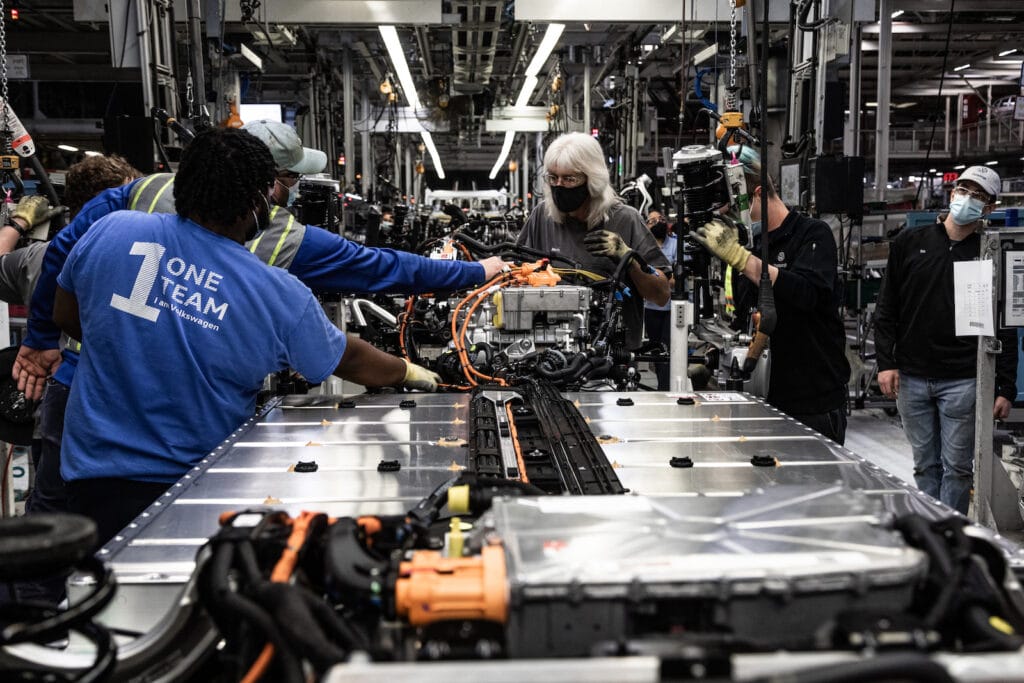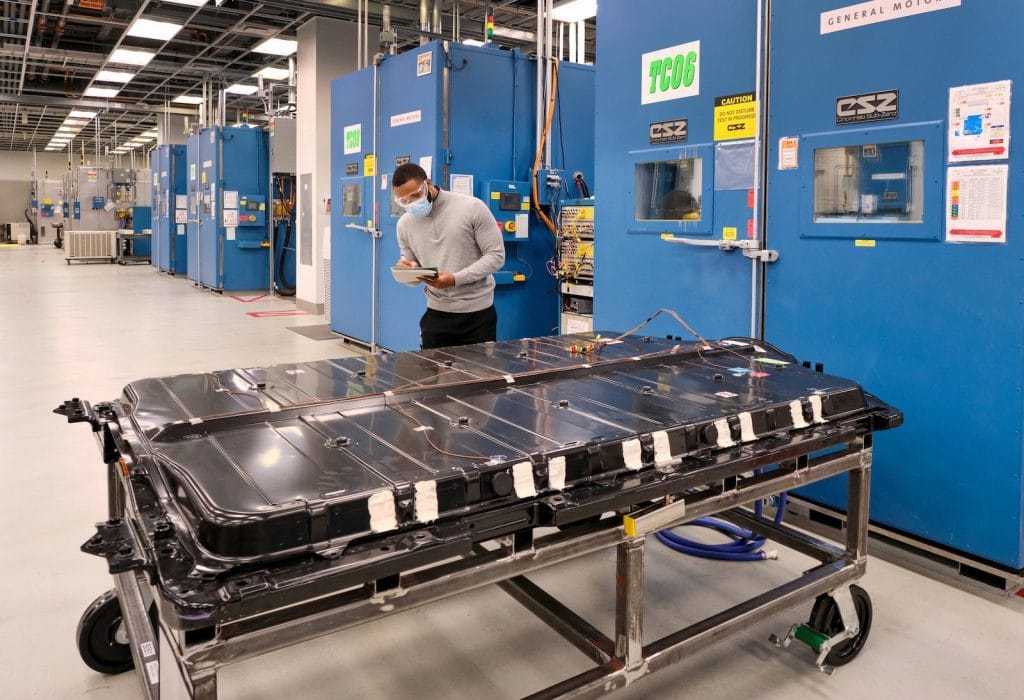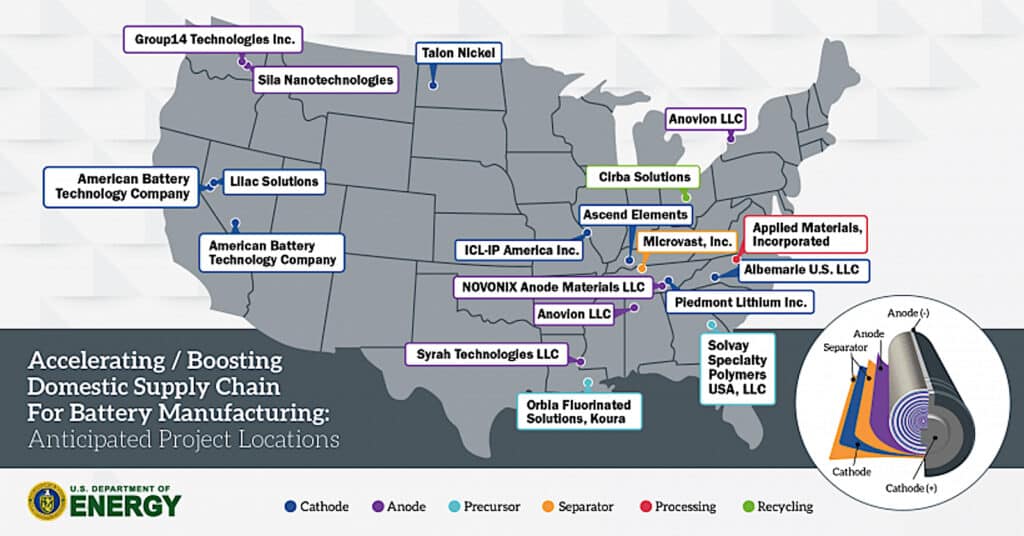President Joe Biden announced the Department of Energy is awarding $2.8 billion in grants for companies and organizations developing enough lithium to produce batteries for 2 million new EVs annually.

The grants, which are part of the Bipartisan Infrastructure Law, will go to 21 manufacturing and development projects spread across 12 states, including Alabama, Georgia, Kentucky, Louisiana, Missouri, Nevada, New York, North Carolina, North Dakota, Ohio, Tennessee, and Washington.
These awards are on top of previous announcements of funding for EV charging stations and other projects, officials noted.
Each grant will be matched by funds raised by the recipients, totaling more than $9 billion invested to increase American production of EV batteries, including development of lithium production and the establishment of significant domestic production of graphite and nickel. The investment is also strategic because of the requirement for U.S.-sourced battery materials for EVs to qualify for tax credits under the Inflation Reduction Act.

The funding for the selected projects will support development of enough domestic battery-grade lithium to supply approximately 2 million EVs annually, as well as domestic graphite to support 1.2 million EVs, and enough nickel for 400,000 EVs per year.
The grants will also help create the first large-scale, commercial lithium electrolyte salt (LiPF6) production facility in the U.S., and an electrode binder facility capable of supplying 45% of the anticipated domestic demand for binders in EV batteries by 2030.
The grants will also support the first commercial-scale domestic silicon oxide production facilities to supply enough anode materials for an estimated 600,000 EV batteries annually, as well as the first lithium iron phosphate cathode facility in the United States.
A complete list of fact sheets for all funded projects is available from the Dept. of Energy.
American Battery Materials Initiative
Biden also announced the American Battery Materials Initiative (ABMI), a new effort to mobilize the entire government in securing a reliable and sustainable supply of critical minerals used for power, electricity, and electric vehicles.
Together, these actions are intended to improve America’s energy independence, strengthen national security, support good-paying jobs across battery supply chains, and reduce costs for working families, officials said.

Outside the U.S., the ABMI will work through the Partnership for Global Infrastructure and Investment, and leverage ongoing work by the Department of State. The plan is to work with overseas partners and allies to strengthen critical mineral supply chains globally, and to leverage and maximize ongoing efforts throughout the U.S. government to meet resource requirements and bolster energy security.
Defense Production Act already in play
Back in March of this year, Biden invoked the Defense Production Act to authorize investments to secure American production of critical materials for electric vehicle and stationary storage batteries—lithium, nickel, cobalt, graphite, and manganese—from sustainable mining and processing, as well as unconventional sources such as mine waste and geothermal brine.
The government has already allocated more than $200 million through the Department of Defense to improve the rare earth supply chain, which is currently controlled by China. The goal is to facilitate the re-establishment of an end-to-end American supply chain for rare earth permanent magnets, such as those used in wind turbines and electric vehicle motors, not later than 2025.All these actions are designed to create an American-controlled domestic supply chain for EV motor and battery materials to make American EV production less dependent on China as the transition to electric vehicles matures. Biden has set a goal that 50% of all vehicles sold in America in 2030 will be electric.







